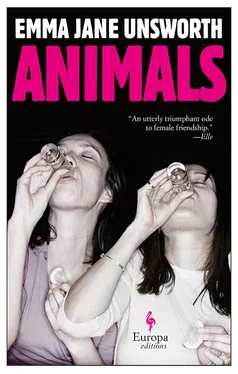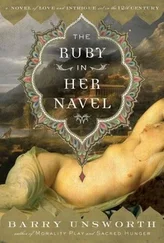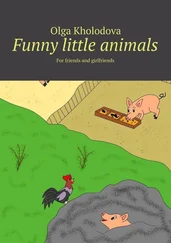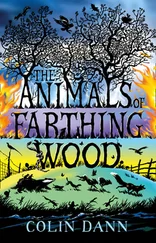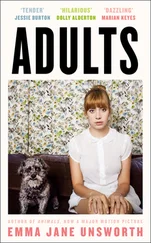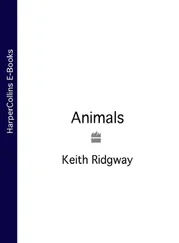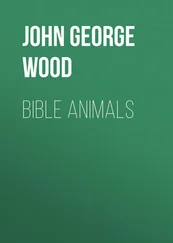The teacher waited until we’d all finished reading and asked a question. ‘What do you think he means when he says “hid his face amid a crowd of stars”?’
Mrs. Coan had seen countless kids like me wriggle their way up through the grammar school: first-generation middle-class with an unstable core of entitlement and parents poised at home for results; for a better way for you, easier than I had, one with options . I didn’t know much but I knew I had to impress. And as Pope said (Pope! Listen to me! I told you…): ‘a little learning is a dangerous thing… ’.
Mrs. Coan didn’t smile as she acknowledged my raised hand. A slightly exasperated tone in her voice. ‘Yes, Laura.’
‘Did he die?’
‘No, but I can see where you’re coming from.’
I got the next one in fast. ‘Did he get famous?’
Mrs. Coan ignored me and looked expectantly at the rest of the class. I kept my hand up, Rolodexing options and collating them into a list of descending likelihood. Meanwhile Rachel Atherton lifted a slender, tanned arm. She was the girl I always vied with for top of English. We wound up sharing the sixth-form English prize — the first time in the school’s history there had been joint winners. A photo from the ceremony, in a silver frame on my parents’ dining-room radiator shelf, showed us gripping the small plaque on either side in an almost invisible tug-of-war. Rachel was smiling in the photo. I was not. We might have locked horns intellectually but she surpassed me when it came to dignity.
‘Yes, Rachel?’ said Mrs. Coan.
Rachel cleared her throat. Took her time. Knew she had a winner. ‘Did he retreat into his art?’
Mrs. Coan clasped her hands and smiled as though all her years of pedagogic graft had finally been validated. Here it was! Lo and, while you’re at it, behold: a shining pearl in a sea of gritty little oysters. ‘What a beautiful answer,’ said Mrs. Coan. ‘Yes, Rachel. He did.’
My inner swot hawked and spat and I spoke again without being asked to. ‘I disagree,’ I said. ‘It’s not just that.’
Mrs. Coan rolled her eyes. This girl. This girl who chews her fingers and won’t sit still, who whispers in assembly and reddens when she’s looked at. She levelled me with an assassin’s grim, unimpeachable gaze. ‘Your problem, Laura Joyce, is that you try too hard .’
And yes, that’s my name. Laura Joyce. Quite a blinder from the great beyond, I think you’ll agree. A fine example of blistering cosmic humour — and one I didn’t truly appreciate until I first started sending out submissions and received several rejections referring to the discrepancy between my own writing and that of my streamy namesake. Want to know what the mysterious ‘dark matter’ they’re searching for actually is? It’s Irony — billions of tons of the stuff, lurking, ready to go. The Universe is not indifferent; the Universe is amused .
To get out of my bedroom I had to slide a clothes rail out of the way of the door. It was tricky getting back in again. In addition to the clothes rail and a small desk I had a single bed, which was why I often ended up in bed with Tyler.
I went to the fridge and found a beer — the last. The kitchen was in its usual state of neglect — the fridge full of things mouldering or threatening to moulder. Philadelphia Light with a green, hairy thing in it that had almost as much character as a muppet. Curling dried bacon, half the pack used and left ripped open as though it had been attacked by a badger. An array of slowly rotting condiments, pickled this and that, bought on drunken whims in express supermarkets. A bowl of withering fruit on the top of the defunct microwave. Bananas that had furiously ripened after being placed beneath apples and grapes (how many times had I warned Tyler that the banana was not a sociable fruit?) that had themselves softened in more sanguine defeat. We didn’t really keep on top of things (Tyler: I’m thrilled when I put the right fucking bin out on the right fucking day ).
I drank my beer looking out of the window. The pub over the road had been boarded up for months. It was long and thin like a pale yellow torpedo, built to suit the shape of an old junction that had since been altered, so the pub wasn’t on a junction at all any more and looked lost even before it was put up for sale. Further down the road was the community garden centre, its chicken-wire fence crocheted with wet spider-webs. When I’d finished my beer I went to the ‘cocktail cabinet’, a kitchen cupboard where we kept the random glasses and anything that had survived the previous weekend. A quarter bottle of whisky glinted from the cupboard’s shadowy depths. I pulled it out. Maybe it would help. Whisky was a lucid kind of drunk. You kept your faculties, mostly. Wine and whisky were my favourites because they felt — and I’m aware of the tragic-sounding nature of this — like company . The easy kind. Maybe it was the names. Merlot — that rambunctious exchange student who talks all night. Chardonnay — the girl with the steam-hammer laugh who’s crashed her sports car on the way over. Pinot Grigio — the quiet one who stuns the room with a braining bombshell. Chianti — total psychopath but charming with it. Chablis — point-blank refuses to go in a tumbler, gets acidic when talked down to. Laphroaig — earthy; always up for intensity without getting po-faced. Lagavulin. Oh, Lagavulin. But for all my appreciation of booze’s plethora of personalities, I didn’t subscribe to the old Romantic lie: if you were sozzled you’d produce works of genius. Hey, lose your mind! Get the opium in. Get tanked. Go fucking bonkers. You’ll produce masterpieces… No no no no no. The point of intoxication for me was not to create but to destroy the part of myself that cared whether or not I created. I drank for self-solidarity; to settle the battles within, or at least freeze-frame them. Because the truth was: I had tried too hard at school. I’d done everything too hard. I sketched too hard (even kind Miss Spooner, the wispy-voiced art teacher, threatened to resort to violence: What am I going to have to do to get you to sketch lightly, Laura, WHIP YOU? ); I brushed my teeth too hard (the dentist: Really, Mrs. Joyce, if you don’t get her to calm down on this then we’re going to have to worry about receding gums …); I played netball too hard — overshooting, overshooting, terminally overshooting.
I filled a Fosters glass a quarter of the way and carried it back to my desk. Sat staring. Drinking. Staring. It was no good. I picked up a book of poetry and took it with the whisky down to the grass. It was sunny for March — not warm but the light was cold and yellow and cheap, like margarine. I sat in the shade by the wall and bent my legs, making a lectern of my knees. Strained to read as the sun shifted meanly over the Manchester skyline. A blackbird clucked in a nearby hedge. A thousand tiny flies went about their business. Early spring. Things awakening. I kicked off my shoes and socks and surveyed my feet. Oh, they were ugly, my feet. Monkeyish. Almost clawed. They hadn’t yet invented the kind of therapy required to console me about them. When I was younger I’d tried to make myself feel better about them by telling myself that Lolita had monkeyish feet and she was desirable. Granted, in a sick, twisted way, but beggars couldn’t be choosers — or rather, mill-workers couldn’t be choosers, because that’s where my long-toed feet had originated from. The girls who worked in the mills of Lancashire (my maternal grandmother being one of them) had to limbo under the moving threads to clear detritus as it fell from the looms. They couldn’t bend for fear of cotton-cuts (think machine-driven paper cuts) so they developed a way of picking things up with their feet, snatching and gripping with their toes then kicking their legs back against their bum to grab the bits between their fingers. Toes stretched and became more dexterous as a result. Darwin got involved (I know , impossible, but throw me a toe-bone here). Jim said I might be able to play the piano with my feet, that he’d teach me.
Читать дальше
